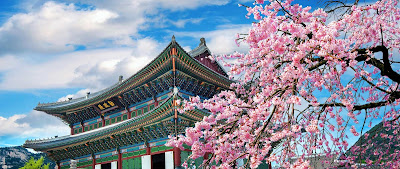25 UNKNOWN FACTS ABOUT KOREA
Hangul Invention: King Sejong the Great and his scholars created Hangul, the Korean alphabet, in the 15th century to promote literacy among common people.
Divided Nation: Korea is currently divided into North Korea and South Korea. The Korean War (1950-1953) ended in an armistice, not a peace treaty, leaving the two nations technically still at war.
World's Fastest Internet: South Korea boasts some of the fastest internet speeds globally, with widespread access to high-speed broadband.
Tech Giants: South Korea is home to major technology companies such as Samsung, LG, and Hyundai.
Jeju Island: Off the southern coast of South Korea, Jeju Island is known for its unique volcanic landscapes, waterfalls, and the iconic Hallasan Mountain.
K-Pop Phenomenon: Korean Pop music, or K-Pop, has gained immense international popularity. Bands like BTS and BLACKPINK have a massive global fan base.
Kimchi: A staple in Korean cuisine, kimchi is a fermented vegetable dish, usually made with napa cabbage and Korean radishes, seasoned with chili peppers and garlic.
Public Baths (Jjimjilbang): These communal bathhouses are popular in Korea, offering various saunas, hot tubs, and relaxation areas.
Four Distinct Seasons: Korea experiences distinct seasons: spring, summer, fall, and winter, each with its unique cultural celebrations and activities.
Traditional Hanbok: The Hanbok is the traditional Korean clothing, characterized by vibrant colors and simple lines. It's often worn during traditional ceremonies and celebrations.
Incheon International Airport: Consistently ranked as one of the best airports globally, Incheon Airport is known for its efficiency and amenities.
DMZ (Demilitarized Zone): The DMZ is a heavily fortified border between North and South Korea, often visited by tourists interested in the history of the Korean War.
K-Dramas: Korean dramas, or K-Dramas, have gained a massive international following for their unique storytelling and high production values.
Mount Paektu: A sacred and significant volcano, it's considered the birthplace of Dangun, the legendary founder of Korea.
Tea Culture: Traditional Korean tea culture includes a variety of teas, such as green tea and barley tea, often served in beautiful pottery.
Unique Number System: Korea used its own number system called Korean numerals before adopting the Arabic numeral system.
Hangeul Day: October 9th is celebrated as Hangeul Day in South Korea, marking the proclamation of the Korean alphabet.
Jikji: "Jikji" is the world's oldest extant movable metal print book, printed in Korea in 1377, predating Gutenberg's printing press.
Palaces in Seoul: Gyeongbokgung, Changdeokgung, and Changgyeonggung are historical palaces in Seoul, reflecting Korea's royal architecture.
Futuristic Toilets: Korean toilets often come with advanced features like heated seats, bidet functions, and even music to maintain user comfort.
Everland: South Korea's largest theme park, Everland, features diverse attractions, including a zoo and a water park.
Lunar New Year (Seollal): Koreans celebrate both the Solar New Year on January 1st and the Lunar New Year, which is a major holiday involving family gatherings and ancestral rites.
Korean Folk Village: This living museum in Yongin showcases traditional Korean life, architecture, and customs.
High Educational Standards: South Korea places a strong emphasis on education, and students often have long school hours and participate in extracurricular activities.
Dol Hareubang: These large, carved stone statues, often found on Jeju Island, are considered symbols of protection and fertility.
These facts provide a glimpse into Korea's rich cultural heritage, technological advancements, and unique societal aspects.
25 UNKNOWN FACTS ABOUT KOREA video :
o

No comments:
Post a Comment